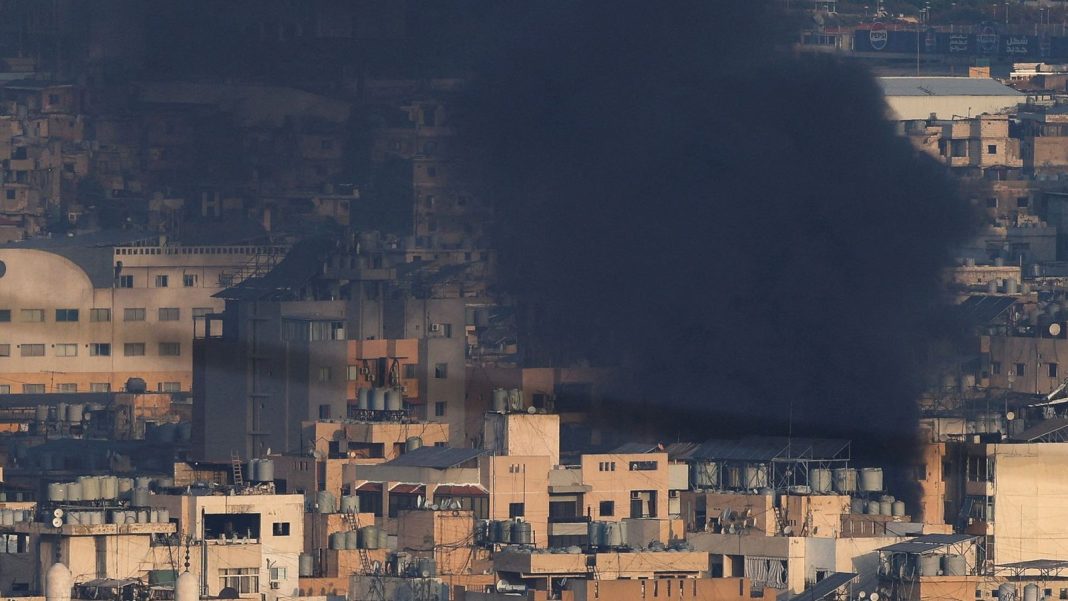Lebanon’s PM Claims ‘Guarantee’ from US on Israeli Strikes, Hours Before Attack on Beirut
In a shocking turn of events, just hours before a significant Israeli strike on Beirut, Lebanese Prime Minister Najib Mikati expressed what he described as a "kind of guarantee" that Israel would scale back its military operations in the capital and its southern suburbs. This statement, made during a lunchtime briefing yesterday, has left many questioning the reliability of such assurances amid ongoing tensions in the region.
Mikati’s comments came after he reportedly received this promise through contacts in the United States. He seemed hopeful that the situation would de-escalate, suggesting that diplomatic channels were working to mitigate the violence that has plagued Lebanon in recent weeks. However, the optimism was short-lived. Early this morning, Israeli forces launched a strike on Beirut, contradicting the Prime Minister’s assurances and raising alarms about the precarious security situation in the area.
While Mikati was speaking of potential reductions in strikes, the Israeli Defense Forces (IDF) were busy issuing statements reaffirming their commitment to targeting Hezbollah positions across Lebanon. This stark contrast highlights the complexities of the ongoing conflict and the challenges of diplomatic negotiations in a region rife with historical animosities.
Adding to the tension, U.S. State Department spokesperson Matthew Miller addressed the situation shortly after Mikati’s remarks. He confirmed that the U.S. had conveyed its concerns to Israeli Prime Minister Benjamin Netanyahu regarding the recent bombing campaigns in Beirut. "When it comes to the scope and nature of the bombing campaign that we saw in Beirut over the past few weeks, it’s something that we made clear to the government of Israel we had concerns with and we were opposed to," Miller stated, adopting a notably firmer tone than previous communications from Washington.
In a further escalation of diplomatic pressure, the U.S. has issued an ultimatum to Israel, demanding improvements in the dire humanitarian conditions in Gaza within the next 30 days. Failure to address these issues could result in a cut to military aid, a move that underscores the shifting dynamics of U.S.-Israeli relations amid growing international scrutiny.
As the dust settles from this morning’s attack, the people of Beirut are left grappling with the uncertainty of their safety and the future of their country. The situation remains fluid, and many are left wondering whether the promises of peace and de-escalation can hold any weight in the face of ongoing violence. With tensions running high and diplomatic efforts seemingly at odds with military actions, the road ahead for Lebanon and its neighbors appears fraught with challenges.



